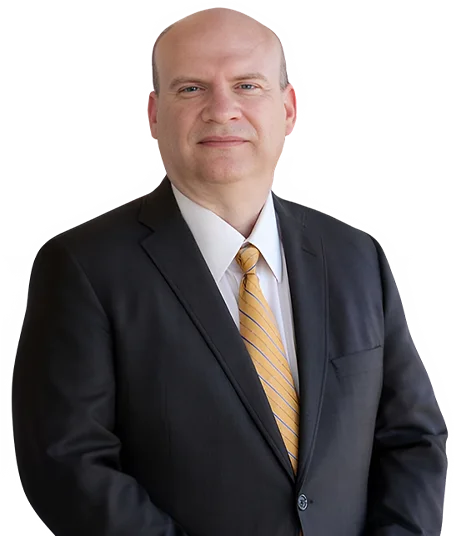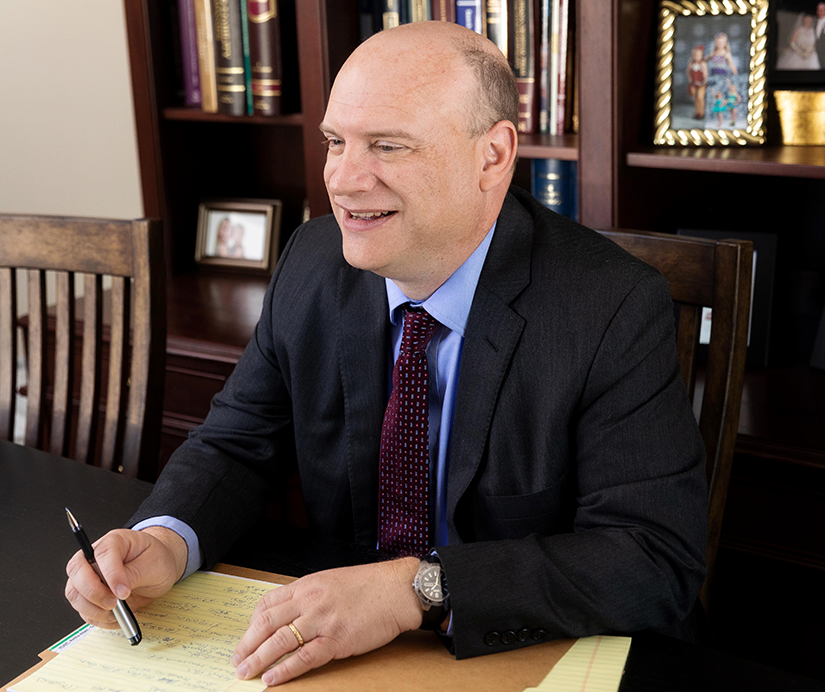Gonzales Criminal Defense Lawyer
Gonzales Criminal Defense Attorney

Criminal charges are quite serious, so it’s important to work with a professional during such a pivotal moment. Learning more about your rights and the legal processes involved in a criminal case is essential for anyone facing criminal charges. A Gonzales criminal defense lawyer can help you make informed decisions and empower you to improve the odds of success for your case.
Your Trusted Partner in Difficult Times
Call Christopher J. Bridges, Attorney at Law 225-644-7250
With over 25 years of experience in the Ascension Parish area, Christopher J. Bridges, Attorney at Law, brings a wealth of knowledge and a compassionate approach to criminal defense law. Our office understands that each client’s situation is unique, so we take the time to listen and work directly with clients to make sure their concerns are addressed and their rights are protected. We are skilled in both litigation and negotiation to help our clients face their criminal charges.
Common Criminal Charges
Criminal offenses are generally organized into three main categories: infractions, misdemeanors, and felonies. Infractions are usually quite minor and apply to offenses like traffic violations, but misdemeanors and felonies are more serious and can result in negative consequences. These types of charges include:
- Violent Crimes: Criminal charges for violent activities involve physical harm or threatening harm to another person. Charges like assault, robbery, and murder are typically worse than non-violent crimes. Penalties for a conviction are severe and can include long-term imprisonment, huge fines, and other severe consequences. These crimes are usually considered felonies due to their serious nature.
- Theft: Taking someone else’s property is considered theft. Burglary is a more severe form of this crime that involves trespassing as well as theft. Other charges like shoplifting are considered more minor, but grand theft of high-value items is typically a felony.
- DUI or Reckless Driving: Serious traffic offenses endanger everyone else on the road and are taken extremely seriously. A DUI involves operating a vehicle while impaired by drugs or alcohol. This can cause you to drive recklessly, but doing this while sober is a separate charge called reckless driving. Since these crimes are related to driving, they also usually involve a license suspension as well.
- Drug Crimes: Common drug crimes include drug possession as well as drug trafficking, which is the intent to sell or give away drugs. If you possess a large enough quantity of a certain drug, then you might receive trafficking charges because law enforcement assumes that you had intended to sell them. Trafficking usually carries a harsher penalty, but the exact punishment varies based on the type of drug.
- Fraud and Embezzlement: These charges usually involve deceiving someone for financial gain or stealing money for personal use. Charges like these are usually called white-collar crimes but could still result in fines and imprisonment. The severity of penalties often depends on the amount of money involved and the offense’s effect on the victims.
Regardless of the nature of the crime, most can have a serious impact on your future. Employers and landlords can conduct criminal background checks and see any convictions you have, so it is important to work with an attorney to reduce or prevent this impact as much as possible.
Why Do I Need an Attorney?
Being charged with a crime can be one of the scariest experiences in a person’s life. The legal system is complex and often overwhelming, but having an attorney by your side can make a significant difference.
An initial arrest can feel like the world is collapsing around you. Whether you were at the wrong place at the wrong time or were experiencing unique circumstances, you could face serious charges depending on the crime. An attorney can listen to your side of the story in an understanding way so you can feel heard and understood.
After the attorney hears your situation, they can explain your rights and the charges against you. This can help you understand the gravity of the situation. They can then help you create a defense strategy to protect your rights and achieve as positive an outcome for your case as possible.
Case Investigation
One of the first steps an attorney can take is to thoroughly investigate the case by gathering evidence, interviewing witnesses, and reviewing police reports. This process can uncover inconsistencies in the prosecution’s case that can prove to be important during a negotiation or in court. An attorney’s deep understanding of the law and attention to detail are vital for building a solid defense.
Court Actions
While most cases settle before a trial begins, an attorney can also file pre-trial motions to attempt to prevent certain evidence from being admitted in court. This can strengthen your defense and protect your rights. If a trial actually occurs, an attorney can cross-examine witnesses to expose flaws in their testimonies. The aggressive defense skills of an attorney can help sway the jury in your favor.
Legal Guidance
Finally, an attorney can help keep you informed throughout the process. Legal procedures can be difficult, but they can explain each step, what to expect, and how to respond. Constant communication from a legal professional can help you feel less anxious about what’s going on in your case.
The Impact of a Felony
If you are convicted on felony charges, it can have intense consequences that affect you for much longer than the immediate penalties will. The impact of a felony conviction can damage many different parts of a person’s life, including their professional opportunities, mental well-being, and social life.
Relationships and Mental Health
The stigma associated with being labeled a felon can be overwhelming, and relationships with family and friends can become strained. Additionally, the emotional toll of working through the criminal justice system and potentially serving a sentence can also lead to mental health issues, like anxiety and depression.
Professional Consequences
Felonies also affect individuals’ professional lives. Many employers are hesitant to hire individuals with a criminal record, especially for positions that require a high amount of confidence and trust. The difficulty of securing gainful employment can lead to financial instability and make it tough to rebuild your life post-conviction. Certain professions, like law and healthcare, have licensing restrictions that keep felons from some job roles.
Long-Term Legal Consequences
Legally, a felony conviction can also have significant legal consequences. Felons lose the right to vote, serve on a jury, or hold public office, which can make them feel disconnected from civic life. A conviction can also restrict the ability of someone with a felony to own or possess firearms. Furthermore, being convicted of a felony can complicate legal issues like child custody, immigration, and government benefits.
Working with an attorney can potentially lessen the penalties associated with a felony or reduce the charge to a misdemeanor. Going through the process alone can lead to unfavorable outcomes with long-lasting repercussions. An attorney’s support is important to help mitigate the long-term effects of a felony charge or conviction.
Contact A Criminal Defense Attorney In Ascension Parish, Louisiana Today
FAQs
What Is the First Step to Take After Being Arrested?
The first step to take after being arrested is to stay calm, collected, and quiet. The less information you give during the arrest without an attorney, the better. After the arrest, contact a criminal defense attorney as soon as possible to discuss your situation. They can explain what charges you are accused of as well as how to take additional steps to improve your outcome and future.
What Are the Penalties for a Criminal Conviction?
The penalties for a criminal conviction are highly dependent on the crime that the individual is convicted of. Some common consequences include:
- Fines
- Prison or jail time
- Probation
- Community service
Some crimes, like those involving drugs and alcohol, might require mandatory counseling. Crimes related to driving or major traffic violations might also come with a license suspension for various amounts of time.
What Is the Difference Between a Misdemeanor and a Felony Charge?
The differences between a misdemeanor and a felony are quite large, but they both still have negative consequences for your criminal record. A misdemeanor is usually considered to be a somewhat minor offense. If convicted, the punishments for a misdemeanor are often less severe than a felony. If jail time is involved, it is normally for less than one year. A felony charge can result in longer sentences, higher fines, and other long-term consequences, like reduced opportunities.
What Are the Rights of a Defendant During a Criminal Trial?
The rights of a defendant during a criminal trial include the right to a fair and public trial. This means that the trial will likely be held in a courtroom and be heard by the public as well as a jury. Defendants also have the right to have a legal representative, like an attorney, work for them on their behalf. They are also protected from double jeopardy, which means that a defendant cannot be tried twice for the same charges, even if there is new evidence or changing events.
Start Building a Strong Defense
Facing criminal charges is often stressful and overwhelming. While the process is not easy, it can be significantly improved with the aid of a criminal defense attorney. You and your family deserve support and guidance during such a challenging time. For experienced and knowledgeable legal help with your situation, schedule a consultation with Christopher J. Bridges, Attorney at Law, today.




